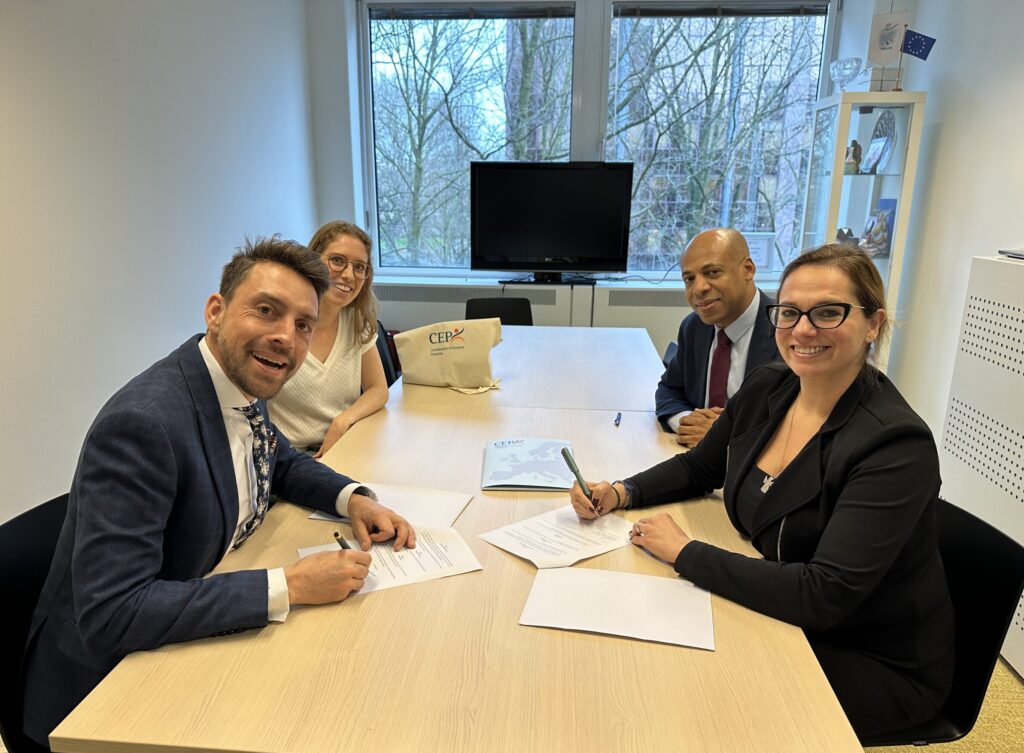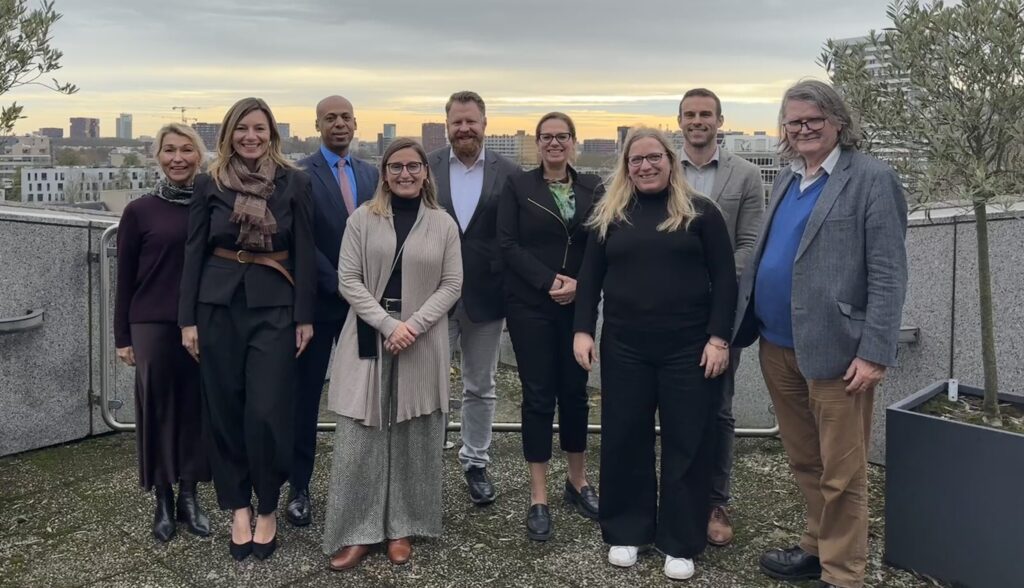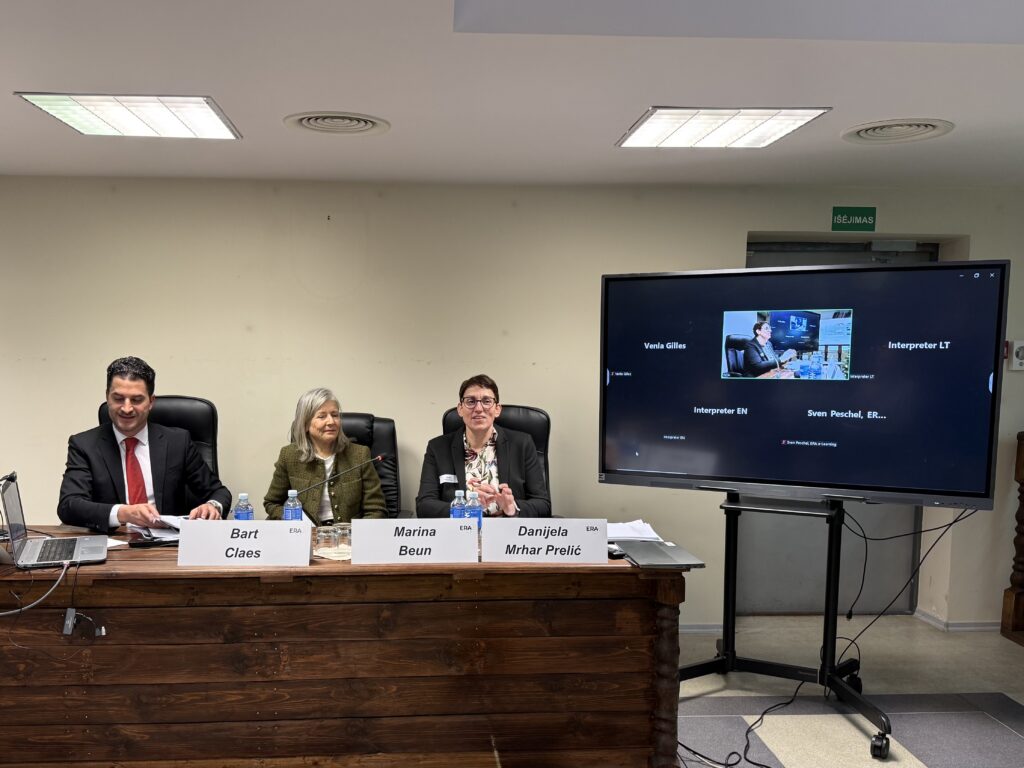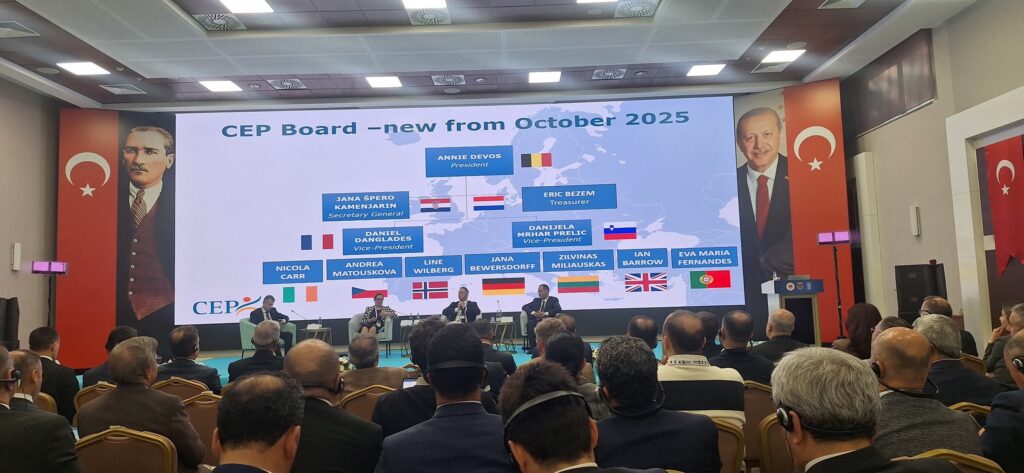Previous Article
News
Back on track, preventing radicalization among prison immates
In 2012 started the pilot project Back on Track, aiming on preventing radicalization among prison inmates. A very current issue, which will also be on the agenda of the International expert event on radicalisation and violent extremism on 14 October in Barcelona. Annette Esdorf from Kriminal Forsorgen, the Danish Prison and Probation Service, shares the insights of the project.
In the special environment of prisons, inmates often face a difficult task of establishing their identity, building a social network and relations. Experience shows that there is a risk that some prison inmates have a negative influence on others. Thus, persons convicted of terrorism, or who exhibit some other form of extremist behaviour, may influence their fellow inmates adversely, and thereby contribute to the emergence of an extremist environment. With the pilot project ”Deradicalisation – Back on track” from 2012, the Danish Ministry of Social Affairs and Integration collaborated with the Danish Prison and Probation Service in developing and testing a mentoring scheme that may help to prevent and counteract crime related to extremism, whether it is right-wing, left-wing or religious forms of extremism. The mentoring scheme was specifically targeted at inmates and remand prisoners who are charged with or convicted of terrorism, or whose offence is subject to aggravating circumstances, because of hate crimes motivated by the victim’s ethnicity, political persuasion, sexual orientation or similar. The target group also comprised inmates or remand prisoners who are deemed vulnerable to radicalisation.
The purpose of the mentoring effort
The aim of the mentoring scheme is to help inmates become better at tackling everyday situations, problems and conflicts. The role of the mentor will be to support and strengthen the inmate’s motivation to opt for a lifestyle free of crime, and to build new relations in non-criminal and non-extremist environments. In the course of the mentorship, focus is on involving the inmate’s family and social network outside of prison, giving them an active role, both during remand, during prison sentence and in connection with the inmate’s re-entry into society. In the re-entry phase, the mentor must furthermore assist the mentee in dealing with concrete challenges surrounding the release. This could be by helping the mentee find a place to live, an education or job, and in the form of support to build new social relations.
Training of mentors
An important element in the project is training of the mentors and hereby strengthening their competencies in relation to various dialogue techniques, coaching and conflict management skills. The mentors must possess the necessary insight and tools for planning and tailoring a mentorship that also accommodates the fact that the mentee is in prison or remanded in custody. To a large extent, the training also focuses on how the mentee’s family and network can be actively involved in the mentorship.
Organisation of the project and the mentoring scheme
The mentoring effort has been organised within the framework of an existing mentoring scheme under the Danish Prison and Probation Service. The project has been carried out as a collaboration between the Danish Prison and Probation Service and the Danish Ministry of Social Affairs and Integration. The Danish Security and Intelligence Service participated in a working group, whose purpose was to ensure the coordination of the effort. A group of 10 mentors have been trained, and among these, 2 persons have been trained as mentor coaches, who can support and supervise the other mentors throughout the project. The mentors and mentor coaches have primarily been recruited from the existing mentor corps of the Danish Prison and Probation Service, and from the existing mentoring project “Deradicalisation – targeted intervention”, which is supported by the EU. In the mentorships, the coaches act as supervisors to the mentors. In the recruitment of the mentors it has been emphasised that they have previous experience with mentoring, with the prison service or similar types of efforts. The training of the mentors has been carried out primarily by psychologist Malene Windfeldt and the consultancy firm Navigent. The Danish Ministry of Social Affairs and Integration has provided teaching in subjects related to extremism and radicalisation.
Learning from Back on Track
The aim of the mentoring effort is to contribute to preventing extremist forms of crime among the target group of prison inmates. The experiences gathered from the project have been used in the expansion of the special mentoring scheme within the Danish Prison and Probation Service that is targeted individuals at special risk, especially relating to extremism. It is the overall assessment that individual and specialized interventions such as this type of mentorship scheme for this target group is much needed and of great value, when it is part of a larger and structured scheme of rehabilitation, and when is it established in cooperation with the relevant authorities.

Related News
Keep up to date with the latest developments, stories, and updates on probation from across Europe and beyond. Find relevant news and insights shaping the field today.
New

Partners
Memorandum of Understanding Signed Between CEP and RESCALED
11/12/2025
On 10 December 2025, at the CEP Headquarters in Utrecht, CEP and RESCALED signed a Memorandum of Understanding (MoU) aimed at strengthening cooperation in areas of mutual interest. The MoU was signed by Rogier Elshout, Chair of Rescaled and Jana Špero Kamenjarin, CEP Secretary General, with the signing ceremony attended by Helen De Vos, Rescaled Executive Director and Daniel Danglades, CEP Vice-President.
Through this partnership, both organizations will work together to develop joint activities, exchange expertise, and support initiatives that advance their shared objectives.
This MoU reflects a commitment to transparent communication and the creation of new opportunities for joint projects and broader community impact.
New

Human rights and ethics
10 December – Human Rights Day
10/12/2025
CEP champions human rights because protecting dignity, fairness and equality is at the heart of effective probation. On 10 December, Human Rights Day, CEP celebrates the principle that everyone deserves respect and justice. Across Europe, CEP promotes social inclusion and supports the reintegration of people in contact with the criminal justice system. CEP strengthens community-based alternatives to imprisonment that reduce reoffending and build safer societies, advances professional and ethical probation practice, and connects practitioners, policymakers and researchers to share knowledge and promote humane justice. For CEP, justice is not only about punishment but also about opportunity, rehabilitation and respect for all.
Recap

CEP Events
Recap: First face-to-face meeting of the Expert Group Chairs
10/12/2025
On 9 December 2025, the CEP Office in Utrecht hosted the first face-to-face meeting of the Expert Group Chairs. The purpose of this meeting was to reintroduce the work of the Expert Groups and explore connections between work plans, opportunities for cooperation, and areas of common interest.
Recap

Framework Decisions
Recap: ERA seminar “Framework Decisions 2008/947/JHA and 2009/829/JHA and their Impact on Alternatives in the EU”
09/12/2025
On 4–5 December 2025, CEP representatives Gerry McNally, Danijela Mrhar Prelić and Pia Andersson attended the ERA seminar “Framework Decisions 2008/947/JHA and 2009/829/JHA and their Impact on Alternatives in the EU” in Vilnius.
Recap

Probation in Europe, Probation outside Europe
20th anniversary of Probation Service in Türkiye
08/12/2025
CEP had the privilege of participating in the Turkish Probation System 20th Year International Congress, marking the 20th anniversary of the Probation Service in Türkiye, held from 1–3 December 2025 at ATGV in Antalya.
Recap

CEP-Europris, Probation in Europe
Recap of CEP and EuroPris Meeting with Catalan Authorities
04/12/2025
On 3 December, on the occasion of the joint CEP and EuroPris Workshop on Transition from Prison to Probation held at the Centre for Legal Studies and Judicial Training (CEJFE) in Barcelona, representatives from both international organisations met with senior officials from the Catalan Ministry of Justice to present their current work, reflect on ongoing cooperation, and explore shared priorities for future collaboration.
Subscribe to our bi-monthly email newsletter!
"*" indicates required fields
- Keep up to date with important probation developments and insights.

